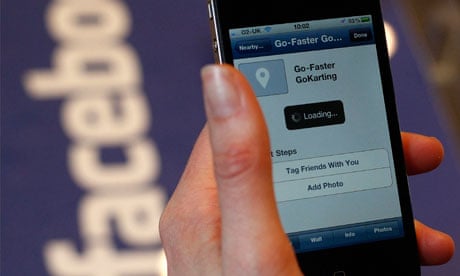Yesterday, Facebook launched Facebook Deals in the UK, a new scheme that rewards consumers if they "check in" to a shop or restaurant in the real world. The "check in" is shared with friends and Facebook and reveals to the company even more about the way its users live their lives. Some are concerned that Facebook is changing our concept of privacy, but I think we're actually returning to the privacy familiar to our great-great-grandparents.
Just a few generations ago, most people were born and died in the same place and worked for themselves or for businesses in roughly the same area. Consequently, they knew the people around them – their extended family, their neighbours and their work colleagues – extremely well. Sure some stuff was kept hidden, but in an age before TV, cinema and even mass literacy, there wasn't much to entertain you other than gossip. And living and working in the same place forever made it pretty hard to reinvent yourself.
Just over a century ago, most of my ancestors moved to Britain, primarily from the ghettos of Poland, Lithuania and Russia. They ostracised themselves from their existing social networks and created new identities for themselves in a totally different country.
And it wasn't just large-scale migration that started to eat away at the old social structures. People started to lead much more complicated lives. Transport improvements meant it was possible to work some distance from home, making it easy to have a new, separate group of friends who wouldn't necessarily be connected to each other. Job security begun to diminish and continual employment movement became the norm, creating a new set of work friends every time. Teenagers started going to university en masse, meeting people from all around the world
People were now able reinvent themselves and lead relatively anonymous lives. Even the internet, when it first came along, reinforced this anonymity. My "screen name" was benjyuk. A play on my own name, yes, but it actually revealed very little about me. I had an avatar to represent my face and no one had any idea where in the UK I was from. You could chat to people you might never know the real name of and you certainly would never meet . In fact, you could actually end up speaking to a real-world friend and never realise it.
Then something happened, something that started in a very particular social context. Facebook was launched, solely for the use of university students. Initially it was used by students at particular elite universities to communicate with their friends at the same university, thus establishing that Facebook would be about real world relationships, based around your real identity. But as the number of universities on Facebook grew, so too did the size of the social networks. And of course, when Facebook became open for all to use, users started to share their lives in much more detail with others, including their families, returning us to the old concepts of community and strong family relationships that had been broken down by distance and anonymity.
Now half of those online in the UK actively use Facebook. All of the disparate friendship communities that make up our complicated, modern lives are linked together. We all get to share in the lives of our friends.
So, in many ways, Facebook is actually returning us to old-fashioned notions of community, where people do know the lives of those in their networks intimately.
But if it's an old concept, what is the fear about the changing nature of privacy? Should we reconsider the doubts expressed about Facebook – not least because you have the ability to control who sees what?
The only real concern, as far as I can see, is that Facebook itself is seeing all of this information. It's this information that makes Facebook so valuable. The true cultural shift isn't that we're sharing more and more information with the whole web, because we're not – most of us do not have entirely public-facing Facebook profiles. It's not that we're sharing more with our friends, because, as I argue, that's an old concept. It's just that we're also sharing it with a private company too, and we're not certain how it will use the information we give it, though arguably it can't do anything that risks alienating its users. This one cultural shift is something I don't think anyone would have predicted or indeed would have felt comfortable doing back in days of old.
